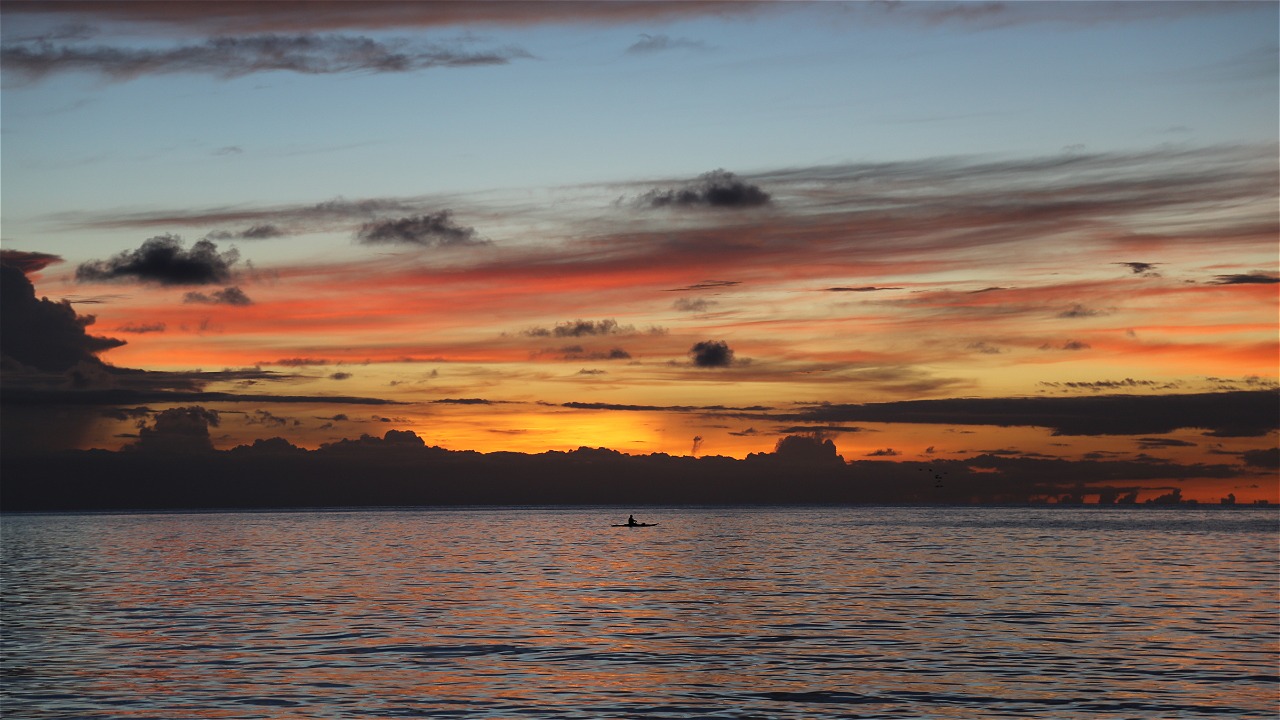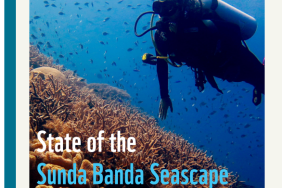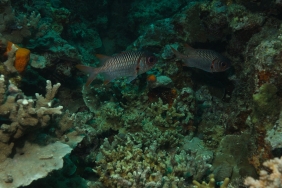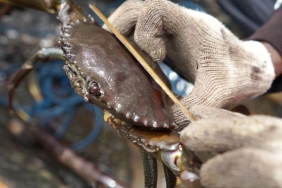WAITING! THE VILLAGE REGULATION THAT WILL PAVE THE WAY FOR SUSTAINABLE TOURISM MANAGEMENT IN MEKKO
By: Nisa Syahidah (Communication, Sunda Banda Seascape, WWF-Indonesia)
Read Previously: Opens Tourism Information Center, Mekko Hamlet Develops Conservation-Based Maritime Tourism
"I took a deep breath when I saw this beauty, and praised the greatness of the Divine. Then I realized that he made everything with love."
We took a deep breath when we saw tens of thousands of bats resembling black swirls, flying in circles above the tight fences of Bat Island's mangroves. "They are discussing, determining the direction they will go tonight, at 6pm," explained Tardi Sarwan, Responsible Marine Business Coordinator, WWF-Indonesia, who has been directly assisting the Bangkit Muda Mudi Mekko (BM3) Group.
At that time (28/06/2018) at 2pm, guests of the Mekko Tourism Information Center inauguration visited Pasir Putih, the Giant Swimming Pool, and several locations among the 14 Mekko tourist destinations launched. On the bodies of the wooden boats, which were transformed into tourist ships, were painted images of interlocking hands - the logo of the BM3 Group, which symbolizes brotherhood and cooperation to build the village.
Not only above the sky, under its waters, Mekko holds a wealth of coral reef ecosystems and marine life. Since 2013, Mekko waters have been part of the East Flores MPA with a conservation target to support the management and protection of important shark habitats.
Based on WWF-Indonesia data in 2016, in Mekko Waters, 2 shark species were found, namely blacktip reef shark (Carcharinus melanopterus) and white-tip reef shark (Triaenodon obesus) with a total occurrence of 82.69% and 17.31% respectively. The presence of sharks as top predators is an important indicator of the health of a coral reef ecosystem.
"Sustainable tourism management and sustainable shark management are being encouraged to be regulated in the Pledo Village Regulation," said Tardi. "The plan is to release it in January, so that it can become the basis of rules for the governance of the Mekko area, so it will be better in the future," continued I Made Dharmajaya, Alor & Flotim Marine Protected Area (MPA) Coordinator, WWF-Indonesia.
"We, the Bajo people, find it very difficult to organize and group together," Pak Bakri told us in front of his house. A few goats bleat under a tree not far from us. "But we have survived so far in the group, it's amazing. Given the changes in the community, from then to now," he recalls the days when Mekko's fishing community hunted sharks, before 2006.
"I am a nature lover, I love beauty
I promise to maintain and preserve the beauty and uniqueness of Mekko Waters.
I am from Adonara, it is beautiful here. And I am proud of my beautiful land, with its culture and history.
My land and even your land, Adonara always stands in my spirit, concluded Dijah in her poem.
"Mekko fishermen used to catch and sell sharks, now we are building nature tourism, and we will not stop until we reach our goal, the community is prosperous with tourism, and Mekko's nature is preserved," he said.
At the end of our trip, Alfred Ayom (WWF-Indonesia) strummed his guitar on the beach, while singing his own lyrics.
"Mekko's beautiful nature
We always protect
For our generation
Let's keep it together
Come to Mekko..."
And we imagine in the future, this hamlet without electricity, instead of signals, is thriving. The opening of road infrastructure and development plans by the government urge Mekko to be ready to receive tourists while teaching them about taking care of nature, towards conservation that prosper.




